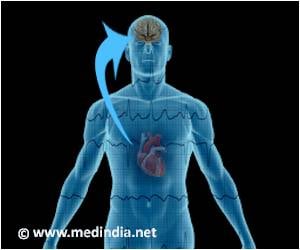
‘Atrial fibrillation patients with no schooling missed anticoagulation treatment targets more often, were less aware of bleeding risks, and did not know they could continue normal daily activities.’
Tweet it Now
80% of university educated patients knew they could drive, play sports and travel by plane compared to 52% without schooling. EHRA President Professor Gerhard Hindricks said, "Blood thinning medications, also called oral anticoagulants, are the most effective way of preventing strokes in patients with atrial fibrillation and risk factors for stroke. We asked patients what they knew about their drugs and analyzed whether this differed by gender, age, education level, and country of residence."
A total of 1147 patients with atrial fibrillation and taking oral anticoagulation completed 40 questions online. Oral anticoagulation included the vitamin K antagonists (such as warfarin) and the non-vitamin K oral anticoagulants (also called NOACs). Responses were collected over three months. Patients were 66 years old on average and 46% were women. Patients were from eight countries: France (33.6%), Denmark (26.6%), Sweden (20.9%), Spain (7.7%), Norway (4.5%), Germany (3.7%), the UK (2.2%) and Italy (0.8%).
The responses reveal disparities between patients with differing levels of education in terms of the benefits of anticoagulation and knowledge about the medication. Patients taking vitamin K antagonists such as warfarin are advised to keep their international normalized ratio (INR) level, which indicates how long it takes blood to form a clot, between 2 and 3. Patients with no schooling were more likely to exceed the upper limit several times a month than those with college or university education (5.1% vs 2.8%, p<0.05).
Awareness of the bleeding risks associated with anticoagulant drugs was lowest in patients without schooling (38.5%) and highest in those with college and university education (57.0%) (p<0.05). Nearly one in four (23%) patients without schooling reported having bleeding events associated with their medication compared to 18.7% with college and university education. Patients without schooling also had a higher rate of previous stroke (2.6%) than those with college and university education (0.71 %) (p<0.05).
Advertisement
The impact of anticoagulation on quality of life differed by education level. The majority (80.2%) of patients with university education knew that they could continue their normal daily activities such as traveling by plane, sports, driving a car, or having a job, compared to just 51.8% of patients without schooling (p<0.05).
Advertisement
Taking the patient group as a whole, when asked about the purpose of their anticoagulation medication, the majority (91-94%) correctly understood that it was to 'thin the blood' but 6-9% incorrectly said it was to control the arrhythmia. Professor Carina said, "The survey demonstrated that a significant percentage of patients (around 8%) did not even understand the purpose of anticoagulation correctly and surprisingly, the number of patients who were aware of NOACs was still quite small."
She added, "This survey has important implications as it shows not only the need for more education in general about the indication and use of anticoagulants in patients with atrial fibrillation, but importantly also that differences in educational level among patient populations may significantly compromise the safety and efficacy of anticoagulants."
Professor Carina concluded, "We believe that associations and societies like EHRA and the ESC have an important task to provide more user-friendly educational tools to improve knowledge about anticoagulation use - when and how to take it and the importance of taking it - for both atrial fibrillation patients and their physicians. We also need to increase the awareness of NOACs, so that all patients, independent of their educational level, can have access to the most optimal therapy."
Source-Eurekalert













